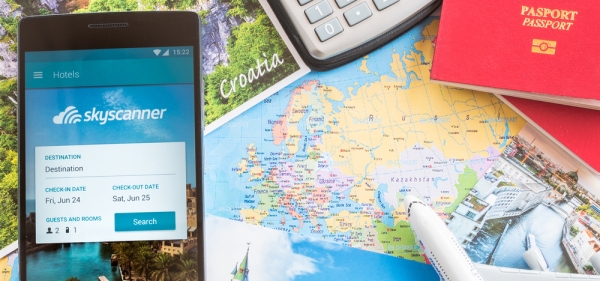Flying can be stressful enough for those more able-bodied, but as we grow a little older, and are perhaps not so mobile, it can become arduous and sometimes even dangerous.
With this in mind, here are some top tips for how to make flying with special requirements as stress and pain free as possible.
Plan ahead by picking up the phone
These days we’re used to automated air travel where everything is done for us online or through an app. You can buy, fly and arrive without speaking to anyone if you want – except maybe immigration, depending on how grumpy the guards are!
When travelling with a disability or special needs, it’s important to inform the airports and airlines you’re using in advance of any special requirements you may have. In some cases you may be able to do this online, but to save you any potential hassle on the day, we suggest phoning ahead to make sure.
Phoning is the best way to secure the seats you want. Make sure you do this at least 48 hours in advance to ensure there’s time to get everything sorted. If you or your travel partner has mobility issues, you’ll want seats near the entrance of the plane and with the most legroom. You’re a lot more likely to get the seats you need if you speak to a human and explain the situation.
Also be aware that in some cases you’ll need to take extra steps before you fly. For example, if travelling with an oxygen tank, you may be required to fill out a form before flying.
Wise up on your rights
Here’s a quick overview of your rights when travelling with special requirements.
a) Medicines
For domestic flights, you may take as much prescription and non-prescription medication as required for your journey. For international flights you may take a ‘reasonable amount’, which is considered to be enough to cover the duration of the flight, allowing for any delays.
Before you fly, remember to bring along any documents you might need to prove your reliance, such as prescription papers, and to check up on drug restrictions in the country to which you’re travelling.
b) Disability devices and aids
There are no restrictions for prescribed medical devices and aids if you are travelling on domestic flights, as long as you carry supporting documentation. For international flights prescribed medical devices and aids are exempt from restricted liquids and items, but you are only allowed to carry quantities that you need for your flight.
You must inform security of any devices that may affect their search. Any aids/devices that can be removed must be scanned separately. If you’re wheelchair bound, then you may forgo the regular security check and opt for a pat down search instead.
c) Hearing and vision impaired travellers
Hearing aids are not affected by metal scanners and you will not be required to remove them for the security search.
If you’re vision impaired, you may be asked to scan any walking aids. If you cannot be separated from them, then you can inform security agents that you require a different form of screening.
If you have a service animal then you will not be required to go through the metal detector. However, you and your animal will need to undergo a pat down search.
Visit the Government website for more detailed advice.
Consider getting extra help
Airlines and airports are generally very good at looking after people with disabilities. However, with so much else to take care of, they may not be able to give you the level of service you require.
There are some companies that will assist you or a family member when flying. They can offer anything from basic packages that include specialist transportation and travel companionship, all the way through to on-hand intensive care paramedics.
For specialist medical care, take a look at Medical Travel Companions based in Australia, or if you’re after a more comfortable concierge service, then try the international Royal Airport Concierge.
If you or your travel partner just need some help getting through the airport, remember that you can take someone with you all the way to the gate without them needing to fly. All they need is a passport so immigration is sure they’re not trying to illegally smuggle themselves away!
Book smart!
Some airlines are better than others at catering for the disabled. Check review sites to learn about other passengers’ experiences with the airlines you’re considering. Particularly, be on the lookout for any potential hidden costs.
You can the use a travel search site, such as Skyscanner to easily filter out any airlines that get bad reviews.
Also consider your onwards travel plans, including what facilities are available at your destination airport, and how you’re going to transfer to where you’re staying. Read more advice on travelling with a disability here.
Emily Callahan is Senior Marketing Manager, Oceania for Skyscanner – a leading global travel search site.
Related articles:
Flying with elderly parents
Make flying more comfortable
Para athlete denied use of toilet

